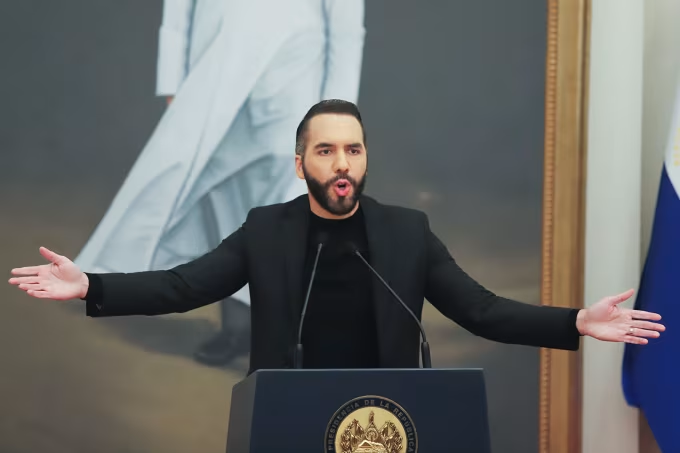El Salvador’s ruling party, led by President Nayib Bukele, on Thursday passed significant amendments to the nation’s constitution, opening the door to indefinite presidential reelection and extending presidential terms from five to six years.
The controversial reform package, initiated by Ana Figueroa of the New Ideas party, targeted five articles of the constitution.
Among the changes was the elimination of the presidential runoff election, a second round where the top two candidates would traditionally face off if no one won an outright majority in the first round.
With a supermajority in the Legislative Assembly, New Ideas and its allies swiftly pushed the proposal through.
The measure passed with 57 lawmakers voting in favour and only three in opposition.
This legislative move cements what many observers had feared since 2021, that Bukele was consolidating power.
That year, shortly after a pro-Bukele Congress was elected, lawmakers ousted constitutional court magistrates, a move that removed what was widely seen as a final check on the president’s authority.
The Supreme Court, restructured by Bukele’s allies, later ruled that presidents could seek reelection, clearing the way for Bukele’s successful 2024 campaign, despite previous constitutional prohibitions.
The Biden administration initially voiced concern, but those criticisms have faded over time. Following the election of Donald Trump to a second term as U.S. President in January 2025, Bukele found a strong international ally.
The Salvadoran leader responded by offering Trump a political gesture, accepting over 200 deportees into a new mega-prison built to house gang members.
Figueroa, defending the proposal, pointed to the existing rules that allow indefinite reelection for lawmakers and mayors.
“All of them have had the possibility of reelection through popular vote, the only exception until now has been the presidency,” Figueroa said.
She also suggested modifying the current presidential term calendar so that Bukele’s ongoing term, slated to conclude in June 2029, would instead end in 2027.
This would align presidential and legislative elections and could position Bukele to run for a longer term two years earlier than anticipated.
Not everyone welcomed the constitutional overhaul. During Thursday’s legislative session, Marcela Villatoro of the Nationalist Republican Alliance (Arena) held up a sign reading, “Democracy died today.”
“You don’t realize what indefinite reelection brings: It brings an accumulation of power and weakens democracy … there’s corruption and clientelism because nepotism grows and halts democracy and political participation,” Villatoro warned.
However, the Assembly’s vice president, Suecy Callejas, argued the reforms empowered the electorate.
“Power has returned to the only place that it truly belongs … to the Salvadoran people,” she declared.
President Bukele, known for referring to himself as “the world’s coolest dictator,” remained silent in the immediate aftermath of the vote.
His popularity continues to soar, primarily due to his aggressive crackdown on street gangs.
Despite past reports suggesting secret negotiations between his government and gang leaders, Bukele’s approval ratings have been bolstered by a state of emergency that has enabled mass arrests, albeit at the cost of suspending certain constitutional rights.
Bukele’s approach has influenced political figures across Latin America, with several attempting to mirror his tough-on-crime rhetoric and governance style.
Nevertheless, concerns over growing authoritarianism persist. In July, a leading human rights organization announced it was relocating its operations out of El Salvador, citing escalating repression and mounting threats to its staff.
The statement described the government’s actions as a “wave of repression.”
Meanwhile, prominent legal critics of the Bukele administration continue to face arrests, fueling worries that El Salvador’s democracy may be facing its gravest test yet.







